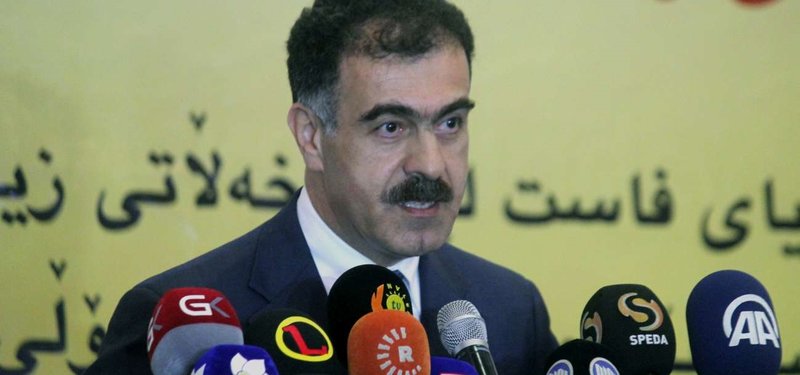
PKK caused evacuation of border villages, KRG spokesman says
On Monday, speaking to reporters in Erbil, the KRG's administrative capital, Safeen Dizayee, a spokesman for the Kurdish Regional Government (KRG), said: "So far, more than 350 villages were evacuated due to the PKK's presence in the region. We have always wanted the PKK to withdraw from the region."
- World
- Anadolu Agency
- Published Date: 12:00 | 08 May 2018
- Modified Date: 01:42 | 08 May 2018
Safeen Dizayee, a spokesman for the Kurdish Regional Government (KRG), said Monday that more than 350 villages near Iraq's borders were evacuated due to the terrorist PKK organizations' training camps in the region.
Speaking to reporters in Erbil, the KRG's administrative capital, he said: "So far, more than 350 villages were evacuated due to the PKK's presence in the region. We have always wanted the PKK to withdraw from the region."
Pointing out that there were hotbeds of terrorism near the Turkey-Iraq border, Dizayee added that the Turkish Armed Forces (TAF) carried out military operations there from time to time.
The Kurdish politician went on to say that the geographical structure of the region, where the terror group is based, was "challenging". He added that Peshmerga forces did not have a strong presence due to the landscape, allowing the PKK easy movement across the region.
The Kurdistan Democratic Party led by Masoud Barzani, the former KRG President, made a statement three years ago in which it said the PKK was responsible for the destruction of 515 villages.
The statement also pointed out that 304 villages in Dohuk, 34 in Sulaymaniyah and 177 in Erbil were occupied by the terrorist group.
- OIL
In response to an Anadolu Agency reporter's question on whether reconciliation was achieved between Erbil and Baghdad over oil exports, Dizayee said that the export of 250,000 barrels of oil per day had been handed over to Baghdad after escalations in Kirkuk erupted on Oct. 16, 2017.
"We had previously submitted a proposal to Iraqi Prime Minister Haider al-Abadi and the Iraqi Oil Ministry regarding the transportation of Kirkuk oil [to Turkey]. We suggested that Kirkuk oil be dispatched to Ceyhan Port by a KRG pipeline and that the Iraqi central government would be in charge of marketing and selling. There have been many contacts on the issue so far, but steps have yet to be taken," he said.
On Sept. 25, 2017, the KRG held an illegitimate referendum that was highly criticized by the international community. Then, the Iraqi central administration seized full control of dispute areas, such as Kirkuk, which had been under Peshmerga control since 2014.
With this maneuver, Baghdad suspended the KRG's oil exports from Kirkuk, which accounts for 60 percent of its total oil exports.
Erbil lost more than half of its revenues and is now able to export 250,000 barrels per day. The KRG used to export an average of 550,000 barrels of oil to Ceyhan Port before Oct. 16.

